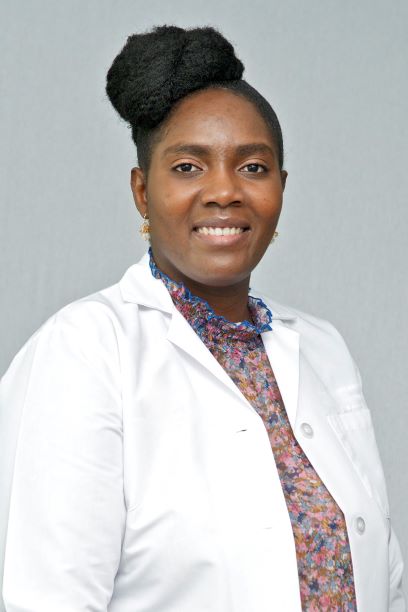
February is Gallbladder and Bile Duct Cancer Awareness Month.
Gallbladder cancer is a rare form of malignancy arising from the cells of the gallbladder, which is a small pear-shaped organ that is located right below the liver.1 The function of the gallbladder is to store bile — a fluid made by the liver to assist in the digestion of fats. Bile travels from the liver and the gallbladder to the pancreas and small intestines through tubes called bile ducts.
Bile duct cancer is also a rare form of malignancy arising from the cells of the bile ducts.1
Symptoms of both gallbladder cancer and bile duct cancer include abdominal pain, nausea, vomiting and jaundice, which is the yellowing of the skin and eyes.1 Additional risk factors for gallbladder cancer include gallbladder stones, porcelain gallbladder, female gender, obesity, older age, family history and being Native American.2 Additional risk factors for bile duct cancer include obesity, primary sclerosing cholangitis (a condition in which there is chronic inflammation of the bile ducts associated with ulcerative colitis), bile duct stones, chronic hepatitis B and C infections, cirrhosis of the liver, liver flukes, being of eastern and southeast Asian descent and family history.3
According to the American Cancer Society, approximately 12,000 cases of gallbladder cancer will be diagnosed in 2023, with approximately 6,000 of these cases being diagnosed in both men and women. Furthermore, according to the American Cancer Society, approximately 8,000 cases of bile duct cancer are diagnosed yearly in the U.S.4,5
Together, gallbladder and bile duct cancers are called biliary tract cancers (BTC) and account for approximately 3% of all adult cancers, with incidence rates rising.6 The majority of patients with BTC are diagnosed with advanced disease, with only approximately 20% of patients being diagnosed with early-stage disease, leading to an overall poor prognosis for these cancers.7
Treatment options for BTC include surgery, radiation therapy and systemic therapy (chemotherapy and immunotherapy). Surgery is the only curative option, and patients diagnosed with early-stage BTC have a chance of undergoing surgical resection. Even in patients who undergo surgical resection, there is a 60%-70% chance of recurrence mostly presenting as metastatic disease.7
Systemic therapy for BTC includes chemotherapy and immunotherapy. Chemotherapy has been the mainstay of treatment for patients with both early-stage and advanced disease for many years. For patients with early-stage disease who undergo surgery, chemotherapy is usually given after surgery. Previously, patients with advanced-stage disease usually only received chemotherapy; however, there have been new advances in the treatment of patients with different types of cancers over the past couple of years, mainly in the use of immunotherapy in cancer treatment.
Immunotherapy is a different form of treatment that causes one’s immune system to fight cancer by allowing the immune system to adjust itself in a way that can allow it to locate and attack cancer cells.8 The FDA recently approved immunotherapy (durvalumab) to be used in combination with chemotherapy as first-line treatment for unresectable and metastatic biliary tract cancers and, per recent studies, this helps improve the overall survival of patients.9
Three things you can do to protect your health: eat a healthy diet, exerce and quit smoking.
If you notice worsening abdominal pain, with or without nausea and vomiting, weight loss and jaundice, it is time to see a doctor.
References:
- "Gallbladder Cancer and Bile Duct Cancer Awareness Month," American Association for Cancer Research, accessed January 30, 2023, https://www.aacr.org/patients-caregivers/awareness-months/gallbladder-cancer-and-bile-duct-cancer-awareness-month/.
- "Risk Factors for Gallbladder Cancer," American Cancer Society, accessed January 30, 2023, https://www.cancer.org/cancer/gallbladder-cancer/causes-risks-prevention/risk-factors.html.
- "Bile Duct Risk Factors," American Cancer Society, accessed January 30, 2023, https://www.cancer.org/cancer/bile-duct-cancer/causes-risks-prevention/risk-factors.html.
- "Key Statistics for Gallbladder Cancer," American Cancer Society, accessed January 30, 2023, https://www.cancer.org/cancer/gallbladder-cancer/about/key-statistics.html.
- "Key Statistics for Bile Duct Cancer," American Cancer Society, accessed January 30, 2023, https://www.cancer.org/cancer/bile-duct-cancer/about/key-statistics.html.
- Li D, Zhang YH, Crook CJ, Iyer RV. Updates in Biliary Tract Cancers. Cancers (Basel). 2022 Jun; 14(11): 2746. Doi: 10.3390/cancers14112746. Published online 2022 Jun 1. PMID 35681726.
- Lamarca A, Edeline J, McNamara MG, et al. Current standards and future perspectives in adjuvant treatment for biliary tract cancers. Cancer Treat Rev. 2020 Mar;84:101936. doi:10.1016/j.ctrv.2019.101936. Epub 2019 Dec 4. PMID 31986437.
- "Immunotherapy," American Cancer Society, accessed on February 6, 2023, https://www.cancer.org/treatment/treatments-and-side-effects/treatment-types/immunotherapy.html.
- Oh DY, He AR, Qin S, et al. Durvalumab plus Gemcitabine and Cisplatin in Advanced Biliary Tract Cancer. Published June 1 2022. NEJM Evid 2022;1 (8). doi:EVIDoa2200015.

